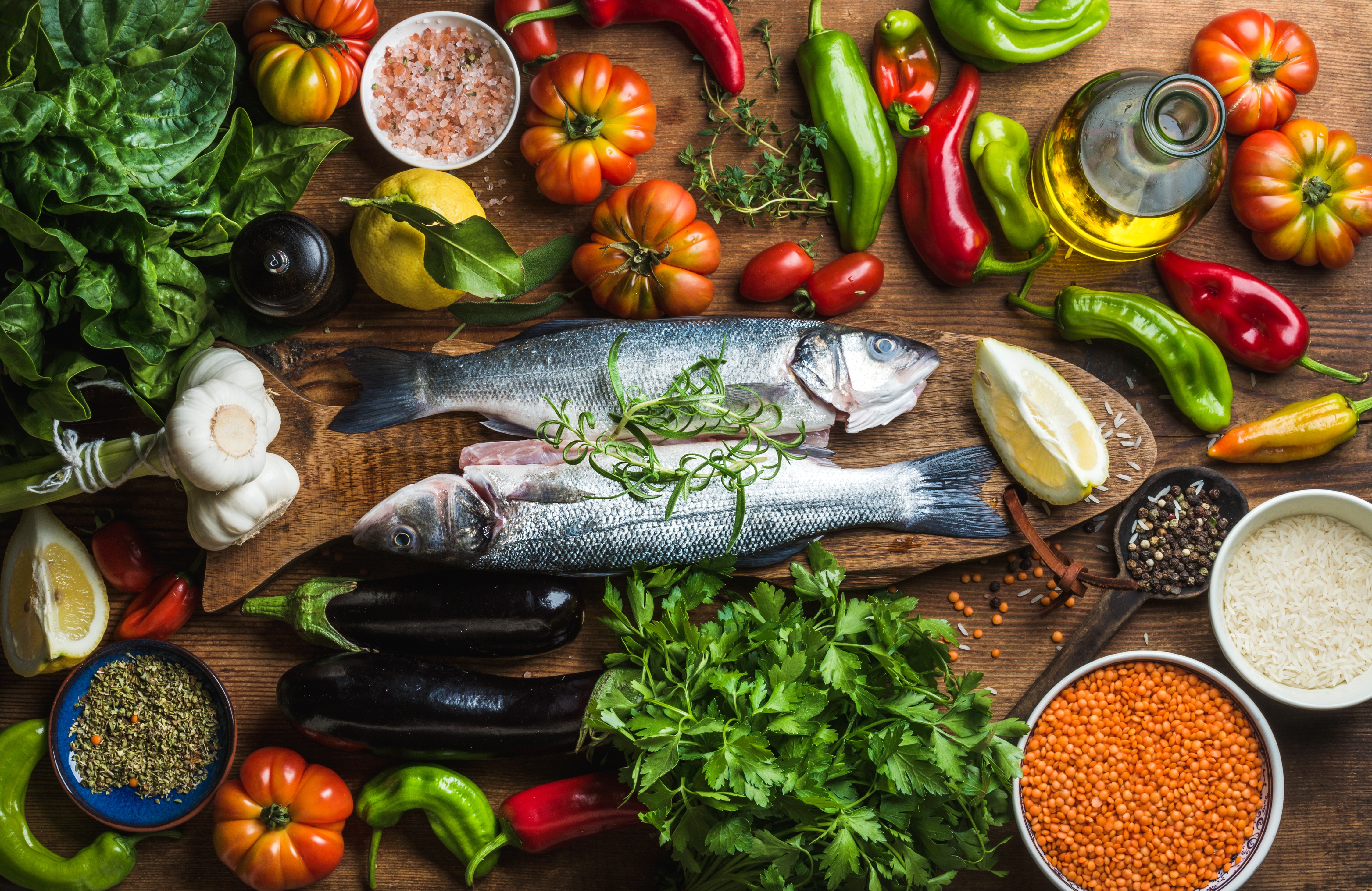The Mediterranean Diet is a proven eating strategy for good heart health. A recent study shows the health benefits may be partly due to improvements in HDL particle function.1
What is HDL particle function and why is this important?
HDL means “High Density Lipoprotein”, which is a scientific name for a very important set of microscopic particles in the blood. The HDL particles are like multi-tasking superheroes that help keep the arteries healthy. These particles are best-known for slowing the accumulation of cholesterol plaques in the arteries which lead to heart disease and strokes. For example, when functioning properly, the HDL particles help remove cholesterol from inside the artery wall (reverse cholesterol transport), help protect the arteries from damage by oxidation (anti-oxidant properties), and help arteries to stay relaxed (vasodilation). Unfortunately, HDL particles can lose their effectiveness (become dysfunctional) as a result of eating unhealthy food. Other important causes of unhealthy HDL particles include lack of physical activity, excess body fat in the abdomen, high blood sugar levels, and smoking.
The good news from this recent study of the Mediterranean Diet is that a healthy eating strategy can help restore the function of HDL particles. Researchers had previously demonstrated that compared to a standard Low-Fat diet, a Mediterranean diet helped reduce the rate of future cardiovascular disease by about 30% over 5 years, in individuals who had risk factors for cardiovascular disease.2
How exactly did the Mediterranean diet improve HDL function, and how much of the heart disease protection is due to the improvement in HDL function? Unfortunately the researchers were unable to answer these important questions, however I will offer some speculation. The researchers found that the Mediterranean Diet group ate more fish, nuts, olive oil, and less starchy foods than the Low-Fat diet group. I suspect these dietary differences help explain why the HDL function was superior in the Mediterranean Diet group. I speculate that reducing dietary starch, and replacing it with fat from healthy sources such as fish, olive oil and nuts allows the HDL particles to mature and function more normally. I further speculate that the superior HDL function in the Mediterranean Diet group helps explain why that group experienced fewer cardiovascular events over a 5-year period, perhaps by slowing the progression of cholesterol plaque accumulation in the arteries of the heart and throughout the body. More research is needed to confirm or disprove this hypothesis.
Another important issue raised by this new study is the following question:
What is the difference between “HDL cholesterol” and “HDL particle function”? HDL cholesterol is simply the amount of cholesterol contained inside all the HDL particles—regardless of whether they are functional or dysfunctional. Unfortunately, changes in HDL cholesterol levels do not accurately reflect improvements or worsening of HDL particle function. Accordingly, in this new study, there was no change in the HDL cholesterol level in either the Mediterranean Diet group or the Low-Fat group, even though HDL function improved in the Mediterranean Diet. Measures of HDL function and the “health” of the HDL particles are very likely to be a much better way to see whether a healthy eating plan is working to reduce heart disease risk. Put another way—you can’t tell how well HDL particles are working by measuring the amount of HDL cholesterol in the blood. We need to be more sophisticated than that to adequately measure improvements in heart disease risk.
What can one do to keep their HDL healthy using the Mediterranean Diet? Here is my five-step process:
Five Steps to Keep Your HDL Healthy With a Mediterranean Diet
- Learn about the Mediterranean Diet—which focuses on vegetables, fruits, fish, beans, nuts, whole grains, and extra-virgin olive oil. There are limited amounts of dairy, meat and sweets. https://www.webmd.com/heart-disease/tc/mediterranean-diet-topic-overview#1
- Get a coach to help you—whether it’s a healthcare provider, dietitian, personal trainer, support group, or a friend—a coach can provide accountability, structure, support, encouragement, and experience. A coach can help you with ideas for grocery shopping, recipes, and cooking. You can learn more about Boston Heart coaching here.
- Keep a food log—smart phone apps are a popular way to track your food intake. A paper notebook can also work well. Logging and tracking your food is a crucially important element to success. You can even use the “Mediterranean Diet Score,” to help gage how closely you’re following it.
- Hit the market—there’s never been a better time to follow the Mediterranean Diet no matter where you live. An amazingly diverse range of vegetables, fruits, fish, shellfish, beans, nuts, and whole grains can be found in markets of all sorts. Whether it’s a farmers market, a fruit stand, or your local grocer, the delights of the Mediterranean await you!
- Measure your HDL improvement—work with your health care team to assess not just the quantity of your HDL, but the quality as well. The Boston Heart HDL Map was created to help your doctor assess your HDL quality. You can learn more about the HDL map here. {link HDL blog]
In words of Hippocrates, widely known as the Father of Modern Medicine, who lived in ancient Greece near the Mediterranean Sea: “Let food by thy medicine, and medicine be thy food.”
References:
1.Hernaez A, Castaner O, Elosua R, et al. Mediterranean diet improves high-density-lipoprotein function in high-cardiovascular-risk individuals: A randomized controlled trial. Circulation. Feb 2017; 135:633-634 https://circ.ahajournals.org/content/135/7/633
2.Estruch R, Ros E, Salas-Salvado J, et al. Primary prevention of cardiovascular disease with a Mediterranean diet. N Engl J Med 2013; 368:1279-1290 https://www.nejm.org/doi/pdf/10.1056/NEJMoa1200303
